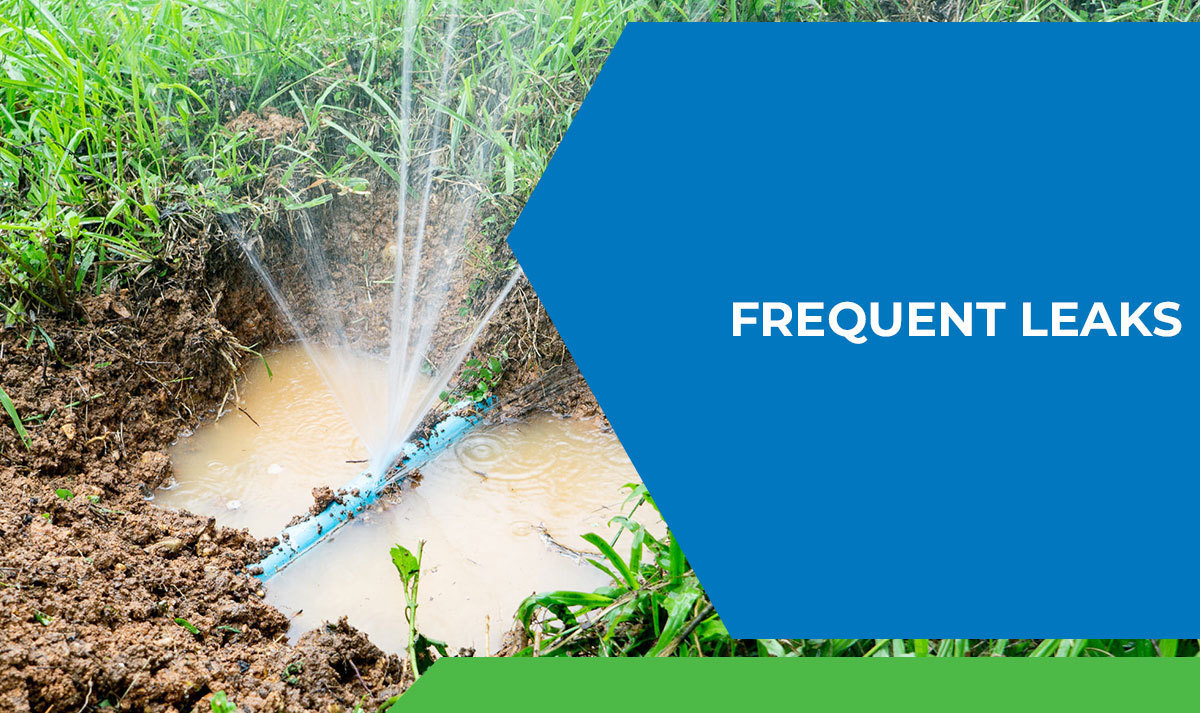Who doesn’t love a healthy garden with colourful flowers? A garden irrigation system plays a major role in boosting your home’s curb appeal and contributing to its overall well-being.
To maintain a healthy garden, it is essential to have a well-functioning irrigation system. But, like all machinery, these systems age. Even with routine maintenance, repairs and replacements, the time will come when it will stop working.
But there are ways to tell that it’s time for a new irrigation system installation.
Here, we discuss those signs so you have a fair idea of when it is time to replace your old irrigation system.
Is It Time for a New Irrigation System Installation? (How to Recognize the Warning Signs)
An irrigation system is the backbone of a beautiful garden. While different parts may need to be repaired or replaced throughout its life, you can expect the average sprinkler system to last 15-20 years.
However, your garden irrigation system will eventually decline, as will your lawn watering system. So, how do you know when it’s the right time to replace it? Let’s look at the major warning signs.
- Frequent Leaks

Leaks are a common problem in irrigation systems. You usually find them in older systems, and they normally occur in the mainline. This is the internal/external tubing that carries pressurized water from your water source to your irrigation valves.
Small leaks, such as those within sprinklers, valves, or nozzles, are easily repaired. However, if mainlines leak, your system will start underperforming because there won’t be enough water reaching valves and sprinkler nozzles for distribution. Then you might have to replace the system.
In the case of your sprinkler heads, if they continue leaking even after multiple repairs, it is probably time to consider an upgrade. This will save you money over the long run as you won’t be spending time and money on frequent repairs.
- Low Water Pressure
Your irrigation system being unable to project water as efficiently as it is used to is a clear sign that it is in need of help. The problem may be caused by chips or cracks in the sprinkler head. Seek help from irrigation experts to determine whether it needs to be repaired or completely replaced.
- Increasing Water Bills
If you notice a sudden but ongoing hike in your water bills with each passing summer, it may be due to an inefficient irrigation system.
Poor system installation may be to blame, or decreased efficiency because of age. When the system becomes less efficient, it requires more water to get the job done, causing a sudden and sustained leap in your water bill. Call a plumber to determine whether the problem can be resolved, or if it’s time for a replacement.
- Poor Design
Under and overwatering can both be detrimental to your garden. Poor design may be the reason behind both scenarios. You may notice that it is overwatered in some areas or that there are large dry spots where water does not reach.
If you see that the system can’t adjust its flow as per the plant, soil, weather change, or hydration level, know that these are all signs of outdated irrigation. Work with an irrigation expert to figure out which type of sprinkler system will best meet your garden’s requirements while minimizing water waste to save you money.
- Old Irrigation System
How old is your irrigation system and how many years does it have left? Have you had to replace parts or noticed repeat signs of distress and damage?
Every system has a lifespan, and the older it is, the more prone it will be to breakdown and need repair. And since systems become outdated, repairing them may cost more than upgrading to a new one. Thanks to advances in technology, newer sprinkler systems are much more cost-effective and energy-efficient.
Without proper irrigation, your garden cannot survive, let alone thrive. Hopefully, keeping track of these warning signs will help you understand whether your irrigation system requires repair or replacement. If you have any trouble assessing the problem, contact an irrigation expert near you to better understand your irrigation system.

